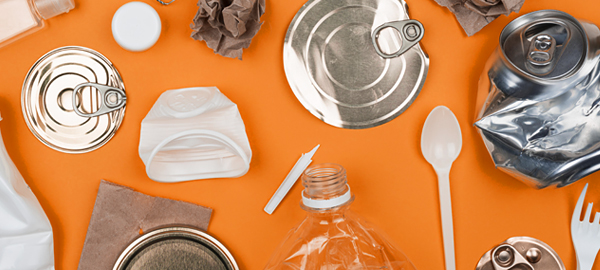
66% of Americans Have Recycled in The Last Year, but Only Half of Recyclers Say They Do So Habitually – Signaling an Opportunity for Easy Tips to Learn How to Make Recycling Habitual
McLean, Va. (December 16, 2021) – While 86% of Americans who recycle want to reduce their environmental impact – especially during the winter holidays, which tend to see an increase in waste – only half (54%) report that recycling is part of their everyday habit. To help uncover easy, practical ways to form recycling habits that stick, the Paper and Packaging Board (P+PB) partnered with expert behavioral scientist and researcher Dr. Wendy Wood, Provost Professor of Psychology and Business at the University of Southern
California.
Together, P+PB and Dr. Wood conducted a November 2021 survey of 972 Americans ages 18 to 55 to identify the cues that drive recycling habits. These insights generate tips that anyone can use to make recycling an automatic part of their daily routine and to feel good about doing it.
“Despite increased concern for the environment, many Americans still don’t fully grasp how simple daily actions, such as recycling paper products, lead to important changes like reducing carbon footprints and protecting forests,” said Mary Anne Hansan, president of P+PB. “We are excited to be working with a leader in the habit development space to create actionable tips that can make a real difference in the recycling practices around the country. Dr. Wood’s expertise, combined with our industry knowledge of paper product recycling, makes us confident that these small changes will have an impact on our forests and beyond.”
“Our latest research on how consumers form habits shows that recycling must be easy and rewarding for people to repeat it often enough to become an automatic habit,” said Dr. Wood. “With over 60% of Americans wanting to recycle more in the new year, starting with simple activities during the holiday will help people to form habits that persist all year long.”
There is also an emotional reward associated with recycling which is also one of the keys to forming a habit. Americans who always or frequently recycle say they are doing their part to save the planet (88%) – compared to those who only sometimes or rarely recycle (67%). Dr. Wood shares eight easy tips from the research to make recycling easy and rewarding for Americans year-round:
- Keep a recycling bin at home. While this sounds like common sense, 61% of recyclers who have a bin at home recycle regularly, compared with only 32% of recyclers who don’t have a bin at home—almost twice as much! This is the power of small changes.
- Have more than one bin in your home. 63% of recyclers who have two or three bins in their homes have strong recycling habits! Having more than one bin is convenient and serves as a reminder where to put waste. You don’t have to walk to another room or floor. It also helps prevent having an overflowing bin.
- Ensure that everyone in the household pitches in. Create accountability for everyone. Households where everyone is responsible for recycling show a 15% increase in recycling habits over households that don’t. When everyone is involved, then everyone’s recyclables easily go into the right bin.
- Keep a list or printout in a visible place of what materials can be recycled. Having an easy guide to recycling can make a huge difference. In fact, 63% of recyclers said they would recycle more if cardboard packaging simply had recycling instructions printed on it. Having clear cues reduces decision-making and makes it easier to
recycle correctly. You aren’t forced to scramble for info on the internet or wishcycle. - Opt-in for curbside pickup—if it’s convenient and available in your area. Simply having recyclables picked up increased habits by 24%. This is the ultimate hack to make it easy – without curbside pickup, recyclers have to store their material somewhere until they are able to drive it to a drop off point. That’s just not feasible for many people. The easiest recommendation of all? Recycling cardboard boxes. 71% of recyclers knew to empty, flatten, and recycle boxes.
- Place your recycling bin in an easy location within the home. Opting for a location close to where you generate recyclable material can simplify the process. Among our survey participants who had curbside recycling, 68% of those who had a recycling bin in the kitchen recycled habitually, compared with only 58% of those who kept
the bin in the garage. - Avoid throwing recyclables in the trash. Among habitual recyclers, 61% said they feel guilty when they do this. When recyclables go into the trash, it becomes environmental waste. They can’t be reused or repurposed.
- Start with recycling what is easiest, like paper, as habits build on each other. Recyclers with a strong habit of recycling paper also had habits for recycling cardboard and paper packaging. Starting slow and easing your way to recycling habits to become a recycling regular.
Paper based products are made with the planet in mind, as they are created out of tree fiber, a resource that is renewable because about twice the amount of trees are grown than are used. Opting for paper products makes recycling easy, and paper can be recycled up to seven times when disposed of properly. In conjunction with using paper products, a key to living sustainably is being diligent about habitually recycling them. For more tips visit www.howlifeunfolds.com and download the P+PB guide, Celebrate the Holidays Sustainably with Paper.
Source: Paper and Packaging Board
About the Paper and Packaging Board
The Paper and Packaging Board promotes the use of paper products and paper-based packaging by highlighting how their sustainable nature and the industry’s practices help contribute to a healthier planet. Forty-six U.S. manufacturers and importers collectively fund the national marketing campaign. www.paperfornature.com


